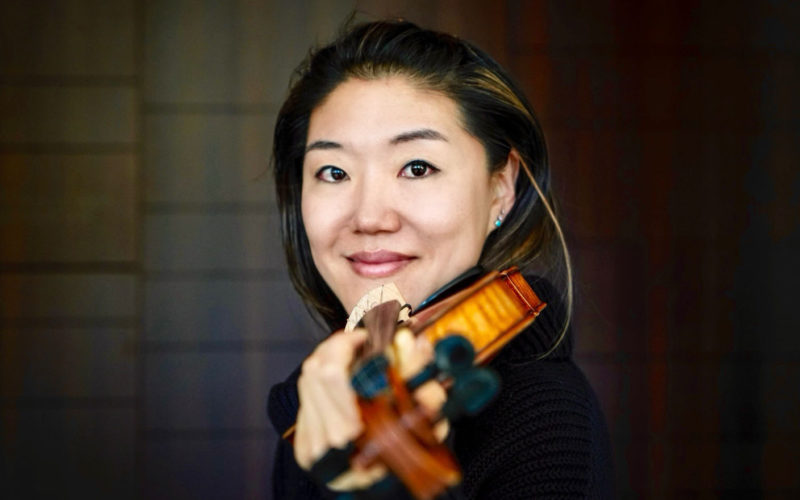Musician catches one of last flights out of UK
JOCELYN MURPHY
jmurphy@nwadg.com
On Thursday, March 19, violinist Er-Gene Kahng and I connected over email. We were discussing scheduling an interview to share her perspective as a professional musician in the wake of the shutdowns and cancellations due to covid-19. Kahng, a professor of music at the University of Arkansas, was in London, where she’d spent the past academic year.
By the time I checked in with Kahng on Tuesday, March 23, she was emailing me from Chicago.
“It’s so interesting how so much has developed in the last few days since we connected!” she said by email.
Kahng had been scheduled to remain in the U.K. through late April, where she planned to spend her last few weeks participating in quiet, maybe even peaceful, social distancing.
“It really became obvious that I didn’t want to take the risk of waiting two to three weeks and possibly being told the situation is of grave concern, and we’re just not allowing anybody — citizens or permanent residents — to enter [America] until this is all contained,” she recalls.
Now safely back in Fayetteville, Kahng and I spoke about her travels during such an unsettling time — “It’s really, really eerie, and it’s not a luxurious experience to be so devoid of people” — her concerns for her fellow musicians — “I felt like there wasn’t enough coverage about the fact that a lot of contract workers were, economically, going to be decimated by this pandemic” — and where we go from here — “It’s been really interesting and inspiring to see how people are basically reinventing old technology.”
On what she saw before leaving London:

Kahng took this photo in London’s Heathrow airport on her way to Chicago. According to its website, the international airport usually sees an average of 219,458 passengers a day.
What was interesting to me was I felt that there was sort of a slow response to recognize the severity and the magnitude of it. And maybe this is every country’s story, I don’t know. … But I just felt that it took a while to kind of galvanize everybody.
But in general, it was this weird mixture of feeling like life was sort of as normal as could be, and that there was maybe some denial or lack of awareness as to what could be coming without more protective measures in place. And also panic. I feel that all three of those things coexisted together depending on kind of what aspect of life you might be encountering that day.
On flying during a pandemic:
On the day that I was traveling, about half of the domestic flights were all canceled. And then on my flight just on Wednesday, two days ago, there were only three people and it was a really eerie situation.
Being an introvert, I thought this was not socially going to affect me a lot, but I don’t know, it kind of triggered sort of an existential fear of just being left out into this wild openness and wondering where all the people are. So it was a short flight, but it was pretty surreal.
On worry for musicians:
Many of my musician friends live with no buffer, with no savings, like many contract workers. And I don’t think it’s an uncommon thing to say that none of us, financially, would have been prepared for something like this.
And, yes, it’s sort of an engineered recession, but I think what the musicians are also concerned about is let’s just stay, in three months, the country [does reopen] for business. It doesn’t necessarily mean that they will be able to recover… There’s only so much you can do — it’s not like it’s some hypothetical puzzle of, “let’s just work at 200% and then you’ll recover it in three months’ time.” And not to mention audience reception, as well. It’s hard to predict how people will feel. I think there will need to be some sort of mourning period and transition period.
On art maintaining optimism:
I really hope that this brings people together … and that people who have already been valuing the arts will continue to reinvent and refine, and invite those who may need a channel to express and explore their emotions.
I think back to my personal reasons for being so invested music: Of course, I was really young, so a lot of it wasn’t fully considered decisions, but they were definitely instinctual. I found it to be such a valuable and irreplaceable vessel for my emotions. That love and that acknowledgement of power and that capacity to create community is something that I’ve always valued and have always tried to play my own little part in maintaining with other musicians and arts lovers.
_
Go Online!
Listen to Jocelyn’s full conversation with Kahng on the NWADG podcast at: nwaonline.com/podcast
Kahng can next be seen participating in an upcoming Trillium Salon Series #remotesalon, date TBD.



